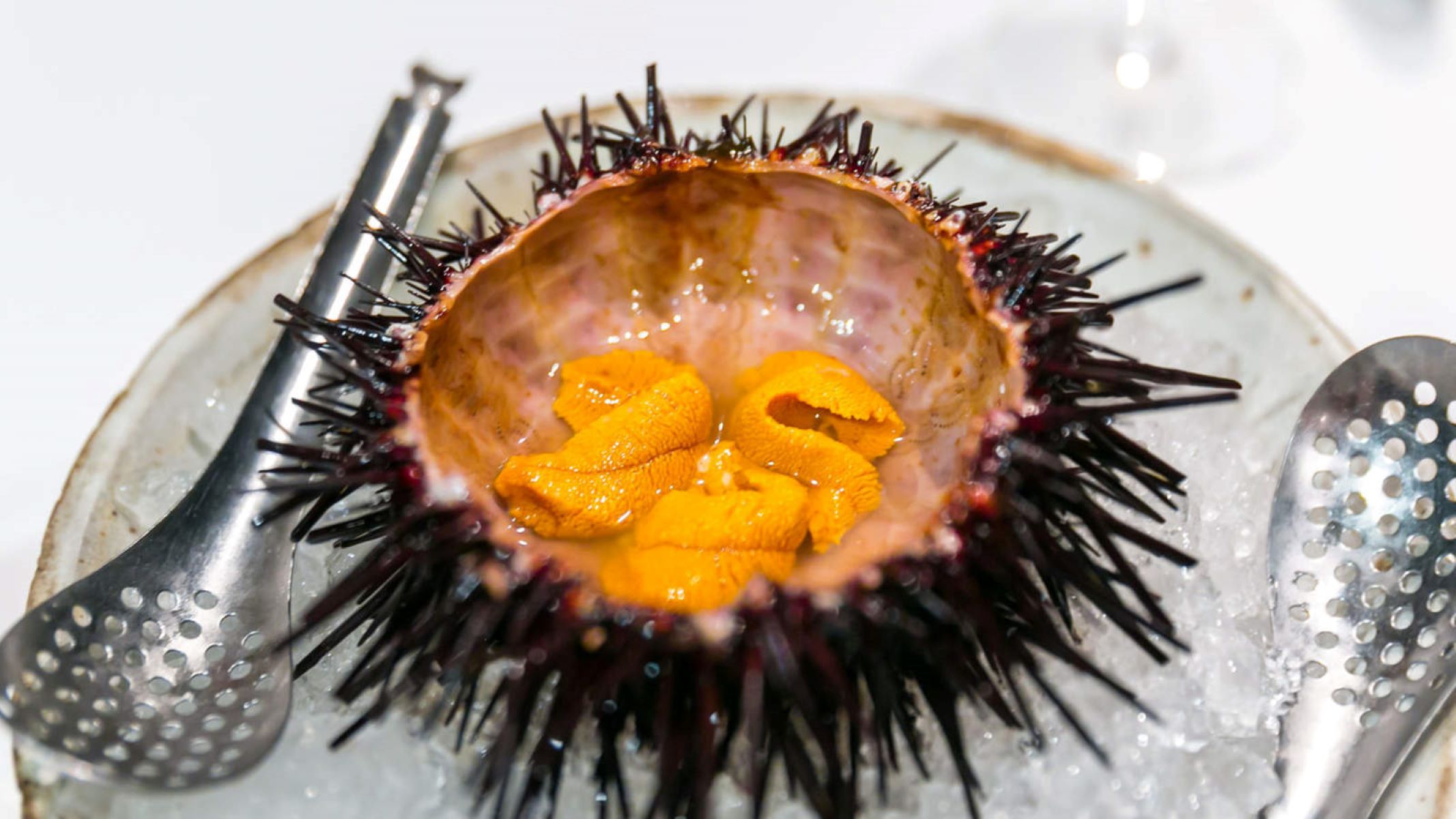

Articles
How To Store Uni
Modified: December 7, 2023
Learn the best ways to store uni articles and keep them fresh. Discover helpful tips and techniques for preserving the delicate flavor and texture of uni.
(Many of the links in this article redirect to a specific reviewed product. Your purchase of these products through affiliate links helps to generate commission for Storables.com, at no extra cost. Learn more)
Introduction
When it comes to indulging in the delicacy of sea urchin, also known as uni, freshness is key. However, it may not always be possible to enjoy uni immediately after purchase. Whether you’re a seafood enthusiast or a restaurant owner looking to stock up on this prized ingredient, learning how to store uni properly is essential to maintain its quality and flavor.
In this article, we will explore the best practices for handling, storing, and using uni to ensure it remains fresh for as long as possible. From refrigerating to freezing, we’ll cover all the necessary steps so that you can enjoy the exquisite taste of uni whenever you desire.
Key Takeaways:
- Proper handling and refrigeration are crucial for maintaining the freshness of uni. Whether you’re a seafood enthusiast or a restaurant owner, following these guidelines will ensure you enjoy the delicate flavors of uni at their best.
- Freezing uni can extend its shelf life, but thawing it properly is key to preserving its quality. Slow thawing in the refrigerator and immediate use after thawing will help you savor the exquisite taste of uni.
Read more: How To Store Store-Bought Bread
Subtitle
Content…
Proper Handling and Preparation of Uni
Before we delve into the storage methods for uni, it’s important to understand how to handle and prepare it properly from the moment you acquire it. Here are some key guidelines:
- Buy Fresh Uni: Purchase uni from reputable seafood markets or suppliers who prioritize quality and freshness. Look for uni that has a vibrant orange or golden color, with a slightly sweet briny aroma.
- Inspect the Uni: Examine the uni carefully for any signs of spoilage or damage. It should have a firm texture and plump appearance, free from any discoloration or unpleasant odor.
- Keep it Chilled: Uni is highly perishable, so it’s important to keep it cold at all times. If purchasing uni from a market, ensure it is packed in ice or stored in a refrigerated case.
- Extracting the Uni: To extract the uni from its shell, use a small spoon or a specialized uni knife. Gently scoop out the bright yellow uni from the center of the sea urchin, being careful not to include any bits of shell or grit.
- Rinse the Uni: Once extracted, give the uni a gentle rinse under cold running water to remove any remaining debris or impurities. Pat it dry with a paper towel before storing or using.
By following these steps, you will ensure that the uni is fresh and clean, setting the foundation for effective storage methods.
Storing Uni in the Refrigerator
The refrigerator is the ideal place to store fresh uni if you plan on using it within a day or two. Here’s how to properly store uni in the refrigerator:
- Wrap it Properly: Place the rinsed and dried uni in an airtight container or wrap it tightly in plastic wrap. This will prevent the uni from drying out and absorbing any odors from other foods in the fridge.
- Keep it Cold: Set your refrigerator temperature between 32°F and 38°F (0°C and 3°C) to ensure optimal freshness and to slow down the growth of bacteria. Avoid storing uni near the refrigerator door, as temperature fluctuations are more likely to occur there.
- Use it Within Two Days: Although uni can be stored in the refrigerator for up to two days, it is always best to consume it as soon as possible to enjoy its peak freshness. The longer it is stored, the more the flavor and texture may degrade.
When you’re ready to use the stored uni, carefully unwrap or uncover it and give it a final inspection. Any signs of spoilage, such as a strong ammonia smell, slime, or mold growth, indicate that the uni should not be consumed.
Note that while storing fresh uni in the refrigerator is a simple and effective method, it is still recommended to consume it as soon as possible to fully appreciate its delicate flavors and textures.
Store uni in the coldest part of the refrigerator, ideally between 32-38°F (0-3°C). Keep it in a sealed container to prevent any odors from affecting the delicate flavor. Consume within 1-2 days for the best quality.
Freezing Uni
If you want to extend the shelf life of uni beyond a few days, freezing is the best option. Freezing uni can preserve its quality for several weeks or even months. Here’s how to freeze uni properly:
- Prep the Uni: Make sure the uni is fresh and properly cleaned before freezing. Rinse and dry the uni thoroughly as described earlier in the article.
- Select a Freezer-Friendly Container: Place the prepped uni in an airtight container that is suitable for freezing. You can also use vacuum-sealed bags specifically designed for freezing to prevent any freezer burn or loss of flavor.
- Label and Date: Before sealing the container or bag, label it with the current date so you can keep track of the freezing time. This will help you to prioritize using the older uni first.
- Freeze Quickly: Put the container or bag of uni in the coldest part of your freezer, such as the back or bottom shelf. The key is to freeze the uni as quickly as possible to preserve its quality.
It’s important to note that freezing uni can affect its texture and delicate flavors to some extent. While the taste may not be as vibrant as fresh uni, frozen uni is still highly enjoyable and a convenient option for occasional use or when fresh uni is not readily available.
Keep in mind that the longer uni is frozen, the more its quality may degrade. Try to use the frozen uni within three to six months for the best results.
Read more: How To Store Basil From Grocery Store
Thawing and Using Frozen Uni
When the time comes to use the frozen uni, it’s important to thaw it properly to maintain its quality and flavor. Here are the recommended steps for thawing and using frozen uni:
- Slow Thawing: To preserve the texture and flavor of the uni, it’s best to thaw it slowly in the refrigerator. Place the sealed container or bag of frozen uni in the fridge and allow it to thaw overnight or for at least 24 hours.
- Avoid Room Temperature Thawing: It’s advisable not to thaw uni at room temperature or using hot water, as rapid temperature changes can degrade its texture and affect its taste.
- Inspect and Remove Any Excess Liquid: Once the uni is fully thawed, carefully open the container or bag and inspect it for any signs of spoilage. If you notice any off-putting odors or sliminess, discard the uni. Also, remove any excess liquid that may have accumulated during the thawing process.
- Pat the Uni Dry: Use a paper towel to gently pat the thawed uni dry. This step is crucial to remove excess moisture and ensure optimal flavor and texture.
- Enjoy the Uni: Thawed uni is best enjoyed immediately after thawing. You can use it in various culinary preparations, such as sashimi, sushi, pasta, or as a garnish for other seafood dishes. The rich and buttery taste of uni will add a luxurious touch to any dish.
Remember, once uni is thawed, it should not be refrozen. It’s essential to use the entire portion to avoid any waste.
By following these steps, you can enjoy the convenience of having frozen uni on hand while still savoring its delicate flavors and textures.
Tips for Maintaining Freshness
To ensure the ultimate freshness of uni and extend its shelf life, consider the following tips:
- Buy Fresh Uni: Choose a reputable supplier or seafood market that provides high-quality, fresh uni. This will give you a head start in maintaining its freshness.
- Store Uni Immediately: As soon as you acquire uni, handle it promptly and store it using the recommended methods to prevent deterioration.
- Keep it Cool: Whether storing in the refrigerator or freezer, maintaining the proper temperature is crucial. Ensure that the uni is consistently kept at the optimal temperature to slow down bacterial growth.
- Avoid Exposure to Air: Oxygen can cause uni to oxidize, leading to a loss of flavor and texture. Keep the uni tightly wrapped or sealed in airtight containers to minimize air exposure.
- Use Proper Storage Containers: When storing uni in the refrigerator or freezer, use containers that are designed for food storage. This will help prevent any cross-contamination and maintain the integrity of the uni.
- Label and Rotate: If you have multiple batches of uni stored in the freezer, be sure to label them with dates to keep track of the oldest ones. Consume the older batches first to ensure freshness.
- Don’t Overstock: While it can be tempting to stock up on uni, especially if you find a good deal, be mindful of your storage space and consumption capacity. Avoid buying excessive amounts that you won’t be able to consume within a reasonable timeframe.
- Inspect Before Use: Before using stored uni, give it a thorough inspection. Look for any signs of spoilage, such as an off-putting smell, sliminess, or discoloration. If in doubt, it’s better to err on the side of caution and discard it.
By following these tips, you can ensure that your uni remains fresh and of the highest quality, guaranteeing a delightful culinary experience each time you indulge in this exquisite delicacy.
Conclusion
Properly handling and storing uni is essential to preserve its freshness and flavor. Whether you’re a seafood lover or a restaurant owner, knowing how to store uni correctly allows you to enjoy this delicacy at its best, even when it’s not immediately consumed.
By following the guidelines outlined in this article, you can ensure that your uni remains fresh and delicious. Whether storing it in the refrigerator for a short period or opting to freeze it for longer-term storage, taking the necessary precautions and maintaining the optimal temperature will help preserve the integrity of the uni.
Remember, uni is best enjoyed as fresh as possible, so try to use it within a few days of purchase, if you can. However, if freezing is necessary, make sure to thaw it slowly in the refrigerator and use it promptly after thawing.
Lastly, don’t forget to inspect the uni before use to ensure it hasn’t spoiled. If you notice any signs of spoilage, it is better to discard it to avoid any health risks.
By following these tips, you can take your culinary adventures to the next level and savor the delicate, buttery taste of uni whenever you desire.
So, go ahead and experiment with uni in your favorite dishes, knowing that you have the knowledge to properly handle, store, and enjoy this exquisite ingredient while maintaining its exceptional quality.
Frequently Asked Questions about How To Store Uni
Was this page helpful?
At Storables.com, we guarantee accurate and reliable information. Our content, validated by Expert Board Contributors, is crafted following stringent Editorial Policies. We're committed to providing you with well-researched, expert-backed insights for all your informational needs.















0 thoughts on “How To Store Uni”